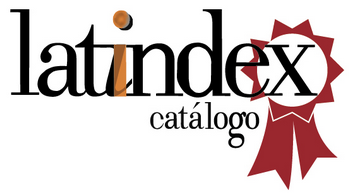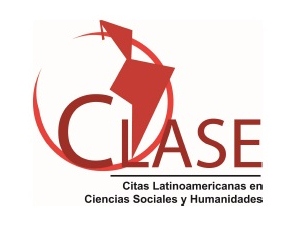La Falsa historia del origen de las falacias
Resumen
Resumen: Los estudiosos modernos de la lógica acostumbran a dar el nombre de 'falacias' a los trece silogismos aparentes que Aristóteles expone en las Refutaciones sofísticas (SE) y a otros argumentos falsos o engañosos que se exponen en las obras de ese filósofo y de otros autores griegos antiguos. Esta denominación parece bien fundamentada, porque se piensa que Aristóteles creo la teoría de las falacias y que el filósofo Boecio (siglo VI d. C) identificó esa teoría y describió las fallaciae que el filósofo griego estudió en sus obras. Sin embargo, la palabra fallacia es poco frecuente en el latín clásico y no se emplea para designar algún tipo de argumentos falsos. En consonancia con lo anterior, Boecio recurre muy poco a la palabra fallacia en sus traducciones y comentarios de los textos aristotélicos, y la aplica para designar ciertos errores en relación con las opiniones o enunciados contrarios, pero no para referirse a silogismos aparentes o falsos en Aristóteles. Este empleo debió darse en el siglo XII, por obra de Jacobo de Venecia, quien escribió un libro ahora perdido a partir de las glosas a los argumentos falsos o falaces en las obras de Aristóteles. En este trabajo se estudia el empleo de la palabra fallacia en latín clásico y su uso en las traducciones y comentarios de Boecio a los textos aristotélicos con la finalidad de mostrar que ni en Aristóteles y ni en Boecio se expone ninguna teoría de las falacias ni se ofrece ninguna lista de falacias.Citas
Abagnano, N. (1998). Diccionario de Filosofía. México: FCE.
Aristotle (1995). On sophistical Refutations. Trad. E. S. Forster. Cambridge (MA): Harvard University Press
_________ (1960). Topica. Trad. E. S. Forster. Cambridge (MA): Harvard University Press
_________ (1866). On Fallacies, or the Sophistici elenchi. Trad. y notas E. Poste. Oxford: MacMillan
_________ (1996). Della interpretazione. Int., trad., y comentarios Marcello Zanatta. Milano: BUR.
Bäck, A. (1996). On Reduplication: Logical Theories of Qualification. Serie Studien und Texte zur Geistesgeschichte des Mittelalters, vol. 49. Leiden: E. J. Brill.
Boetius, Manlii Severini. In librum Aristotelis de interpretatione Commentaria minora, en PL 64, coll. 293-393.
_________ In eumdem librum Commentaria maiora, en PL 64, coll. 393-639.
_________ Interpretatio topicorum Aristotelis, en PL 64, coll. 909-1007.
_________ Interpretatio Elenchorum sophisticorum eiusdem, en PL 64, coll. 1007-1040.
_________ Commentaria in Topica Ciceronis, en PL 64, coll. 1040-1173.
_________ De differentis topicis, en PL 64, coll. 1173-1217.
De Rijk, L. M. (1962). Logica modernorum: A Contribution to the History of Early Terminist Logic, vol. 1. On the Twelfth Century Theories of Fallacy. Assen: van Gorcum.
Dufour, M. (2016). On the difference between fallacy and sophism. OSSA Conference Archive. 80, 1-8. https://scholar.uwindsor.ca/ossaarchive/OSSA11/papersandcommentaries/80
Ebbesen, S. (1976). Anonymus Aurelianensis II, Aristotle, Alexander, Porphyry and Boethius. Ancient Scholasticismo and 12th-century Wester Europe, CIMAGL 16, 1-128.
_________. (1977). Jacobus Veneticus on the Posterior Analytics and some early 13th century oxford masters on the Elenchi. CIMAGL 21, 21, 1-9.
_________. (1981). Commentators and Commentaries on Aristotle's Sophistici Elenchi. A Study of post-Aristotelian Ancient and Medieval Writings on Fallacies, vols. 1-3 (Corpus Latinum Commentariorum in Aristotelem Graecorum VII.1-3). Leiden: Brill.
_________. (1987). The way fallacies were treated in scholastic logic. CIMAGL 55, 107-134.
_________. (1990). “Boethius as an Aristotelian commentator”. En Richard Sorabji (ed.), Aristotle Transformed: The Ancient Commentators and Their Influence. Ithaca/New York: Cornell University Press, 373-391.
_________. (2003). Burley on Equivocation in his Companion to a Tractatus Fallaciarum and in his Questions on the Elenchi. CIMAGL 74, 151-207.
Ferrater Mora, J. (1999). Diccionario de filosofía. Barcelona: Ariel Filosofía [1970].
Galen (1977). On Language and Ambiguity. Trad. de Galen’s De Captionibus (On Fallacies), Int., texto y comentarios Robert Blair Edlow. Leiden: Brill.
Hamblin, C. L. (1970). Fallacies. London: Methuen.
Hitchcock, D. (2006). Informal logic and the concept of argument. En D. Jacquette, D. Gabbay, P. Thagar y J. Woods (eds.). Philosophy of Logic. North Holland, 101-127.
Llach Villalobos, G. (2021). La teoría del silogismo simpliciter en las Refutaciones sofísticas de Aristóteles. Tesis de Doctorado en Filosofía. Santiago de Chile: Instituto de Filosofía de la Pontificia Universidad Católica de Chile.
Migne, J. P. (1891). Patrologiae cursus completus: seu bibliotheca universalis, integra, uniformis, commoda, oeconomica, omnium ss. patrum, doctorum scriptorumque ecclesiasticorum sive Latinorum sive Graecorum... Accurante J. P. Migne. Series latina. Patrologiae Latinae tomus LXIV. Manlius Severinus Boetius. Tomus Posterior. Paris: Apud Granier Frates y J. P. Migne Succesores, https://archive.org/details/operaomnia02boet/page/504/mode/2up?q=fallac.
Vega Reñón, L. (1996). Una guía de historia de la lógica. Madrid: UNED
_________. (2012). “Sofisma”. En Vega Reñón y Olmos Gómez. Compendio de lógica, argumentación y retórica. Madrid: Trotta, 564-566.
Vega Reñón, L. y P. Olmos Gómez. (2012). Compendio de lógica, argumentación y retórica. Madrid: Trotta.
Una vez que un texto es aceptado para su publicación en Quadripartita Ratio, sus autores deben firmar dos documentos de carácter legal: una Licencia de uso y una Declaración de autoría.
Con la Licencia de uso, los autores autorizan la publicación de su obra y la difusión de ésta (integración en bases de datos, difusión en nuestras redes sociales, reediciones posibles, etc.). No obstante, se autoriza la descarga, reproducción y distribución de todos nuestros contenidos publicados, siempre que no se modifique el contenido y se indique su origen (nombre de la revista, volumen, número, páginas y dirección electrónica del documento).
Con la Declaración de autoría, los autores manifiestan que la obra es de su autoría, original e inédita.









